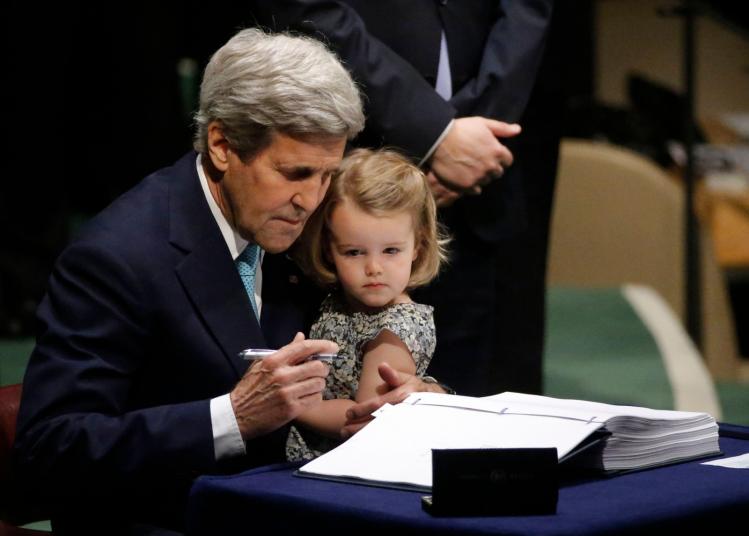
How do you get four years back in the effort to address climate change? The answer is: you don’t. As most people have come to realize, climate change is a cumulative problem; it gets worse, and harder to correct, the longer it’s unaddressed. The Trump administration, however, took wanton pleasure in trying to prove this ironclad principle. Yes, we’ve had decades of inadequate response to climate change, the Bipartisan Policy Center’s Jason Grumet told Axios, but “the last four have been dramatic because there was actually an intention to not respond as opposed to just an inability to respond.” So even as we look ahead to what a Biden administration might do on climate, we must again acknowledge Donald Trump and the Republicans’ recklessness for what it is: not the expression of a defensible policy position or philosophical belief, but the subordination of human lives (indeed, planetary life) to profit, plain and simple.
As a first step, Joe Biden will return the United States to the Paris Agreement. This will have both diplomatic and practical benefits: it will assure the rest of the world that it again has a reliable, stable partner in confronting a global crisis, and it will augur well for more urgent collective action. But it’s also only the easiest step. The administration will have to take special care to engage with China, which is seeking to position itself as an international climate leader even as it continues to burn more coal than all other countries combined. More difficult still will be enacting policies needed to make meaningful progress in bringing America’s carbon emissions under control. Biden’s biggest obstacles on this front are Congressional Republicans and the fossil-fuel interests that bankroll them. Getting anything significant done through legislation seems unlikely, given the probable makeup of the Senate and the partisan hostility Biden is sure to be met with.
But that won’t prevent him from implementing change in other ways. Just as Barack Obama imposed new standards on industrial emissions, Biden can do the same, authorizing stricter rules through the Environmental Protection Agency under provisions of the Clean Air Act. This would likely further reduce coal’s share of the power sector, which has shrunk to 20 percent over the past decade as wind and solar have become cheaper and more efficient. Other federal agencies could offer incentives to industries in the sectors they oversee to scale back emissions and meet higher efficiency standards, while regulatory pressure could be brought to bear in encouraging automakers to move more quickly toward clean-energy vehicles.
This may sound like small-bore stuff to progressives seeking change on the scale of a Green New Deal, but it will all help meet Biden’s targets for a carbon-free electricity grid by 2035 and a net zero-emissions economy by 2050. And the $2 trillion clean-energy plan that he campaigned on isn’t entirely out of line with activists’ calls for something more broadly based: it’s not only aimed at creating jobs in alternative energy but also envisions climate action in the context of other policy areas, including racial justice and economic inequality. Biden’s candidates for top cabinet posts favor aggressive climate policies, and he is seeking to staff the administration with “climate-ambitious” hires at all levels. Trouble is, from catastrophic wildfires to an unprecedented number of Atlantic storms to the hottest September on record, 2020 has offered fresh evidence of the urgency of our situation. And the other pressing crises of the day—the pandemic and the economy—are sure to take priority in the coming year. But we should be happy to have a president who would rather see the planet heal than let it burn down.

